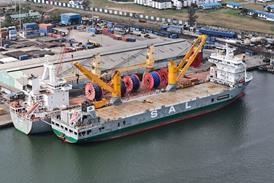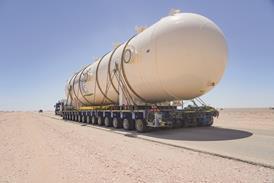October 3 - According to the latest update to its biennial forecast for the air cargo industry - the Boeing World Air Cargo Forecast 2012/13 - the global air cargo market will expand at a 5.2 percent rate annually over thenext 20 years, driven by a world
As a result, Boeing forecasts the world freighter fleet will increase to 3,198 aircraft by 2031, from 1,738 at the present time, with large widebody freighters such as the B747 and B777 representing 36 percent of the fleet, compared to 31 percent today.
The extra demand for capacity will be met by 935 new factory-built aircraft, valued at USD250 billion, with 1,820 freighters coming from passenger-to-freighter conversions.
Presenting the forecast at the International Air Cargo Forum and Exhibition 2012 in Atlanta, Tom Crabtree, regional director, business development and strategic integration, Boeing Commercial Airplanes, remarked: "Air cargo is and will continue to be a vital tool for global businesses and commerce in the management of supply chains and bringing critical goods to market."
In a keynote luncheon address to conference delegates on October 2, 2012, Mike Baer, senior vice president of marketing for Boeing Commercial Airplanes, highlighted the efforts being made by the world's aircraft manufacturers and airlines in their efforts to cut emissions.
Describing the aviation industry as "stewards of the environment," Baer commented that "bio fuels are clearly the choice" as a sustainable source of fuel to combat "elevated and volatile" prices that threatened the air cargo industry.
Noting that Boeing designed all aircraft with a view to their future use as freighters after their passenger life, and calling it "a cornerstone of our philosophy", he said the new B787-900 'Dreamliner' aircraft "will make a dynamite freighter when the time is right".
















